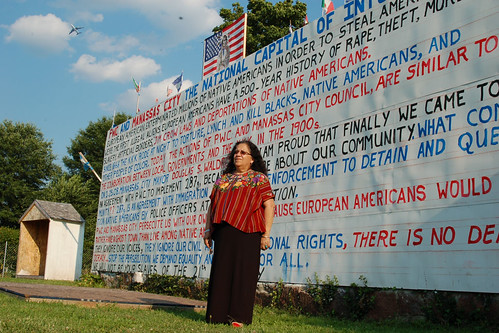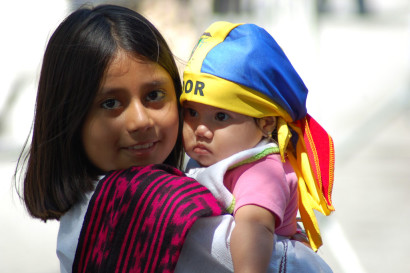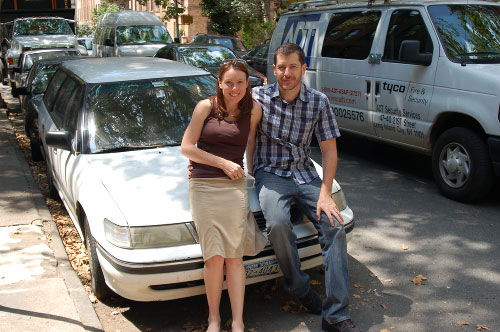Rashida Tlaib wins in Michigan: Now the Arab candidate must mend fences with Latinos
Rashida Tlaib is poised to make history. The Palestinian attorney overwhelmingly beat eight other candidates in Tuesday’s Democratic primary in Detroit, and appears on her way to becoming the only Arab-Muslim woman in the Michigan House of Representatives. The majority-Latino neighborhood where she campaigned borders the largest concentrated Arab community in the US.
Although this was only the primary election, the district is more than 90 percent Democratic and there is rarely a credible Republican candidate.
As we noted earlier this week Tlaib’s candidacy was controversial from the start. Latino leaders in the district felt the seat in Michigan’s 12th House District belonged to them. The mostly Mexican community has a long history in Detroit going back almost 100 years, yet has no political representation in the state legislature.
Community leader Elena Herrada of the Centro Obrero criticized Tlaib in an interview with Feet in Two Worlds. “Rashida actually represents the majority of white voters,” Herrada said, “the new people, the younger people who came into the narrative very late.” Herrada also claims Tlaib is a protégé of current 12th District State Representative, Steve Toboccman, who is the Majority Floor Leader in the Michigan House, and who did not seek reelection because of term limits.
Tlaib also was attacked for being a Muslim Arab.
“Rashida Tlaib, a Palestinian Muslim extremist whose candidacy was touted across the country on extremist Muslim and anti-Israel mailing lists, is unfortunately a viable candidate for this seat,” posted Debbie Schlussel, a conservative blogger based in Michigan.
Schlussel want on to say, “Tlaib was a top official at ACCESS, the Arab Community Center for Economic and Social Services, the agency that gets millions in your tax money to help illegal aliens, fight immigration laws and supports Hezbollah and Hamas.”
Despite the attacks Tlaib won, and won big. She captured 44 percent of the vote, beating her closest competitor by 770 votes.
Her campaign team and volunteers were ecstatic. “We were so tired but when we found out we won I felt that all of that hard work paid off,” said 17-year old Latina Cynthia Carrillo. Carrillo had never worked on a campaign and says it empowered her as a young woman. “I thought politics was a bunch of rich men giving their opinions,” she said. “I learned that women could be in politics too.”
Tlaib’s story is also significant because, some believe, her success also helps break stereotypes about Arab women. “We’re fed up with seeing the same recycled images of Muslim women in the mainstream media, images that repeatedly depict women as passive and helpless,” wrote filmmaker Jolene Pinder. Pinder produced a film called Election Day featuring Tlaib.
Although Tlaib is celebrating her victory, she now must work with Latino leaders who did not support her candidacy. She also must deal with the troubles of a culturally vibrant yet economically distressed community. The district is rampant with drugs, crime and blight, and as part of Detroit, suffers from the highest unemployment rate in the country for any metro area.
Southwest Detroit is home to Michigan’s largest immigrant community. Before running for state representative, Tlaib built her career working on immigrant isssues. “She comes from an immigrant rights background, and that is a tough message in a post 9/11 world,” said Rep. Toboccman.
This article was written by Feet in Two Worlds reporter Martina Guzman.




